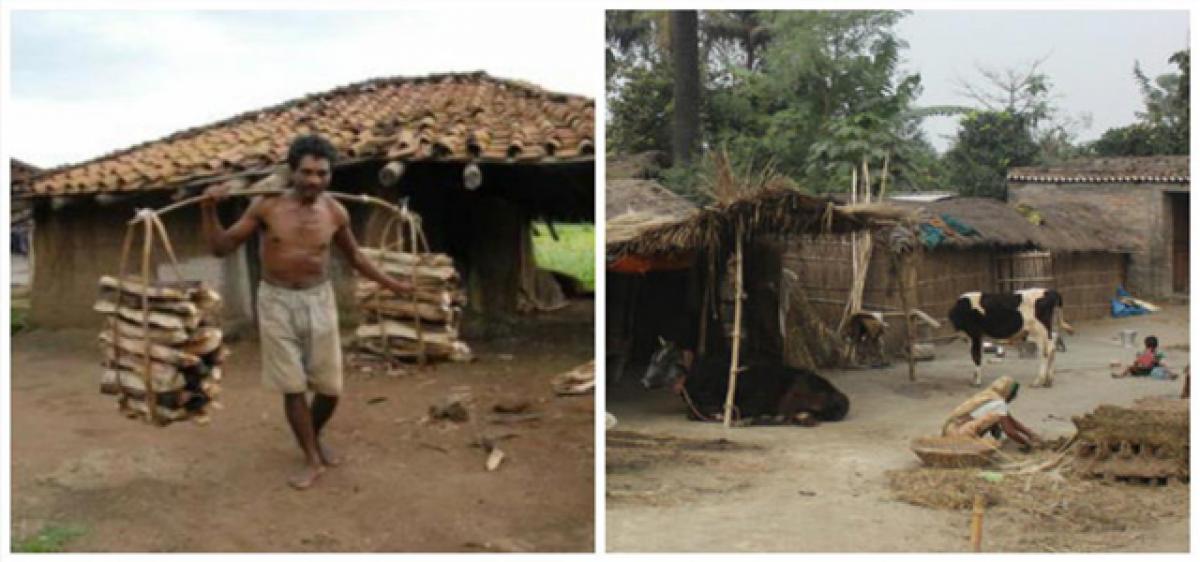Under Modi’s rule, record rise in unspent funds for Dalits, tribals

In the run-up to the 2014 general election, then prime ministerial candidate Narendra Modi, while addressing a gathering of Dalits and backward classes in Kerala, had described himself as a victim of untouchability. \"The next 10 years are going to be yours,\" he had said, to loud cheers.
In the run-up to the 2014 general election, then prime ministerial candidate Narendra Modi, while addressing a gathering of Dalits and backward classes in Kerala, had described himself as a victim of untouchability. "The next 10 years are going to be yours," he had said, to loud cheers.
The National Democratic Alliance (NDA) government ostensibly kept his promise -- the 2014-15 budget witnessed a 25 per cent increase in allocation of the funds meant for Dalits and the adivasis -- the Scheduled Caste Sub Plan (SCSP) and the Tribal Sub Plan (TSP) funds. However, more than one-third of the funds allocated by Central ministries -- Rs 32,979 crore -- remained unspent in 2014-15.
This is an increase of 250 per cent in the money unused, compared to the previous year. Modi's first year in office saw the "highest" amount unspent and also the highest percentage of amount unspent in the last three years (the only period for which the Central government has figures).
Ever since they were first launched 35 years ago, the two funds have been left mostly untouched by successive governments: Rs 2.8 lakh crore ($42.6 billion) set aside to improve the lives of scheduled castes and tribes have been lying unused while their intended beneficiaries continue to suffer severe deprivation. "The government gets away with allocating funds to pacify the people but not actually spending it.
This is at the cost of extremely poor people who direly need these funds," said Paul Divakar, convener of the National Coalition for SCSP-TSP Legislation which monitors the special plans.
There are two big reasons for this neglect: First, there is no legislation to back the plans. Secondly, the committees set up by state governments at several levels to ensure the optimal use of the funds are proving to be ineffective. These panels were meant to identify issues at the local level, select suitable schemes to address, and form a feedback mechanism to fix glitches.
From school bags to mid-day meals, these schemes, drawn up for marginalised classes, are known to be marred by corruption. "The predominant suggestion which emerged in the interaction with the beneficiaries was rampant corruption," the erstwhile Planning Commission (now renamed NITI Aayog) said in a study on the impact of the SCSP and TSP. Three decades after they were started, there is still no central legislation to back the plans -- a long-pending demand.
"Bureaucrats say that it's just a guideline and not a law. They use this to deny Dalits and tribals their due share," said Beena J Pallickal, national coordinator of the National Campaign on Dalit Human Rights (NCDHR).
Divakar believed that legislation will help hold officials accountable for the neglect of the funds. "It will then be binding on them," he pointed out. But efforts to initiate a bill have got nowhere. Pallickal recalls that a draft bill was prepared three years ago with inputs from the NCDHR and experts like P.S. Krishnan, 83, a retired IAS officer and former secretary to the Government of India who was behind the introduction of SCSP in 1980. "But that bill has been in cold storage ever since," Pallickal said.
IndiaSpend cross-checked Bihar's expenditure with documents obtained from NITI Aayog. Bihar spent zero money out of the funds in 1998-99 and 2001-02 despite being allocated Rs 628 crore and Rs 2,393 crore, respectively, according to the Aayog.
But Bihar is not the only truant state. An RTI response has revealed that NITI Aayog doesn't have information on how Rs 3.1 lakh crore of the funds were spent over the years, mainly because states do not report to it.
Separate RTIs to states revealed that barring a few, none has complete details of expenditure. For instance, Kerala has data from 1976 to 2015 on allocation and expenditure of TSP funds. But Assam couldn't provide any data prior to 2009-10. Besides, there were inconsistencies between the expenditure data of NITI Aayog and states for the same year.
Though the funds are allocated in the budget, they are released very late in the financial year, leaving states with a very short window to spend them. For instance, in 2014-15, the Karnataka government made budgetary allocation for SCSP and TSP in the state budget in February.
But the meeting to release the funds was not chaired by the Chief Minister until October -- a six-month delay. This left only five months to spend the entire fund. An official at Karnataka's Social Justice Ministry confirmed this and blamed the situation for the low spending.
For instance, for 2014-15, Telangana's budget for TSP was Rs 4,404.59 crore, but it was revised down to Rs 1,950.29 crore, a decrease of 55.7 per cent. In fact, even states such as Telangana, Andhra Pradesh and Karnataka that have passed legislations for proper implementation of SCSP and TSP, did not make adequate use of the funds.
In 2014-15, Telangana, despite a legislation, did not spend 61.26 per cent of the funds allocated for Dalits, and 64.3 per cent allocated for adivasis, which together add up to Rs 7,475.1 crore.The situation is not very different in Karnataka and Andhra Pradesh.
"Though the bill was passed, no law has been made on it and the government is using that as a shield," said Anjanayulu, former director of the Centre for Dalit Studies, Hyderabad. During the United Progressive Alliance (UPA) rule, the government had diverted its funds to Commonwealth Games. Later, it was revealed that the funds were used by the Delhi government to buy Diwali sweets.
By: Nikhil M Babu
(IndiaSpend.org)

